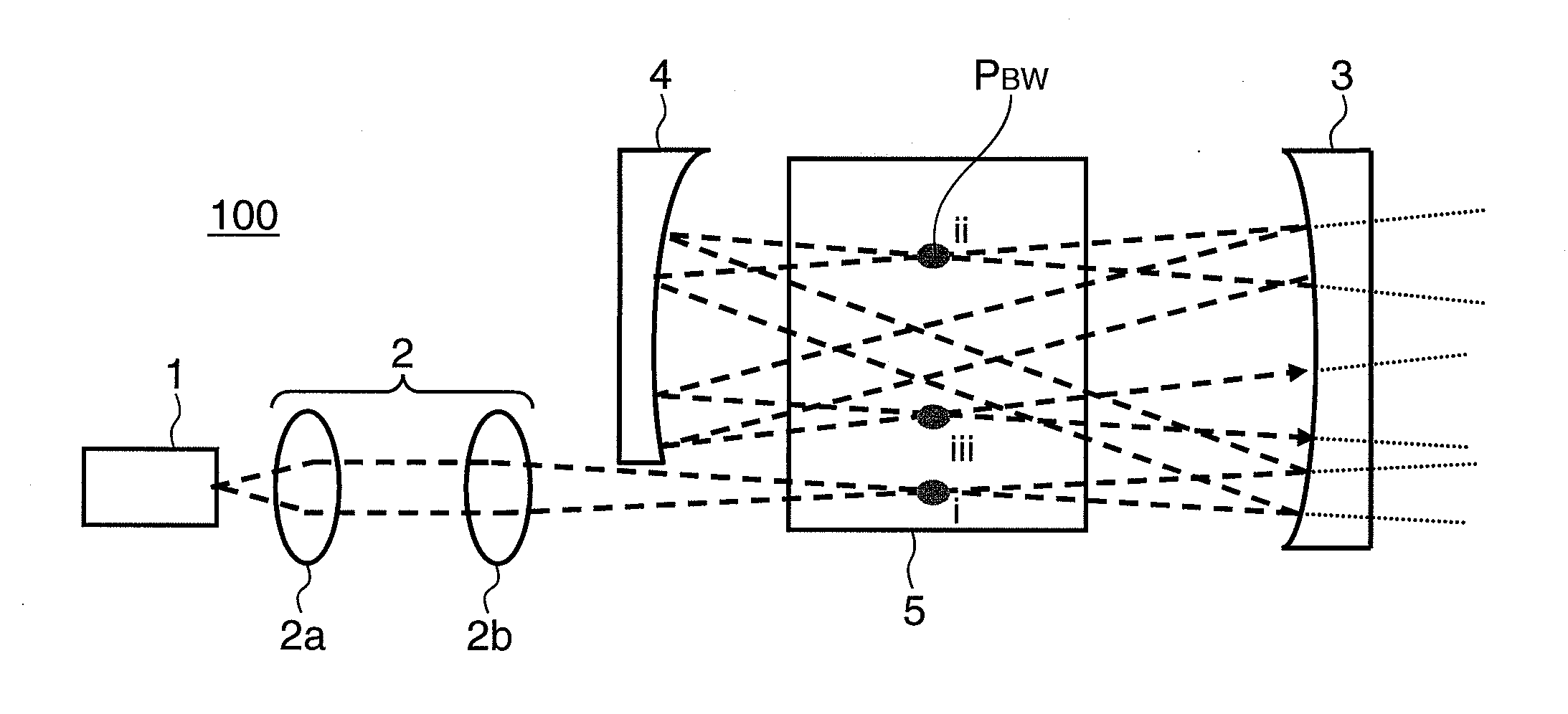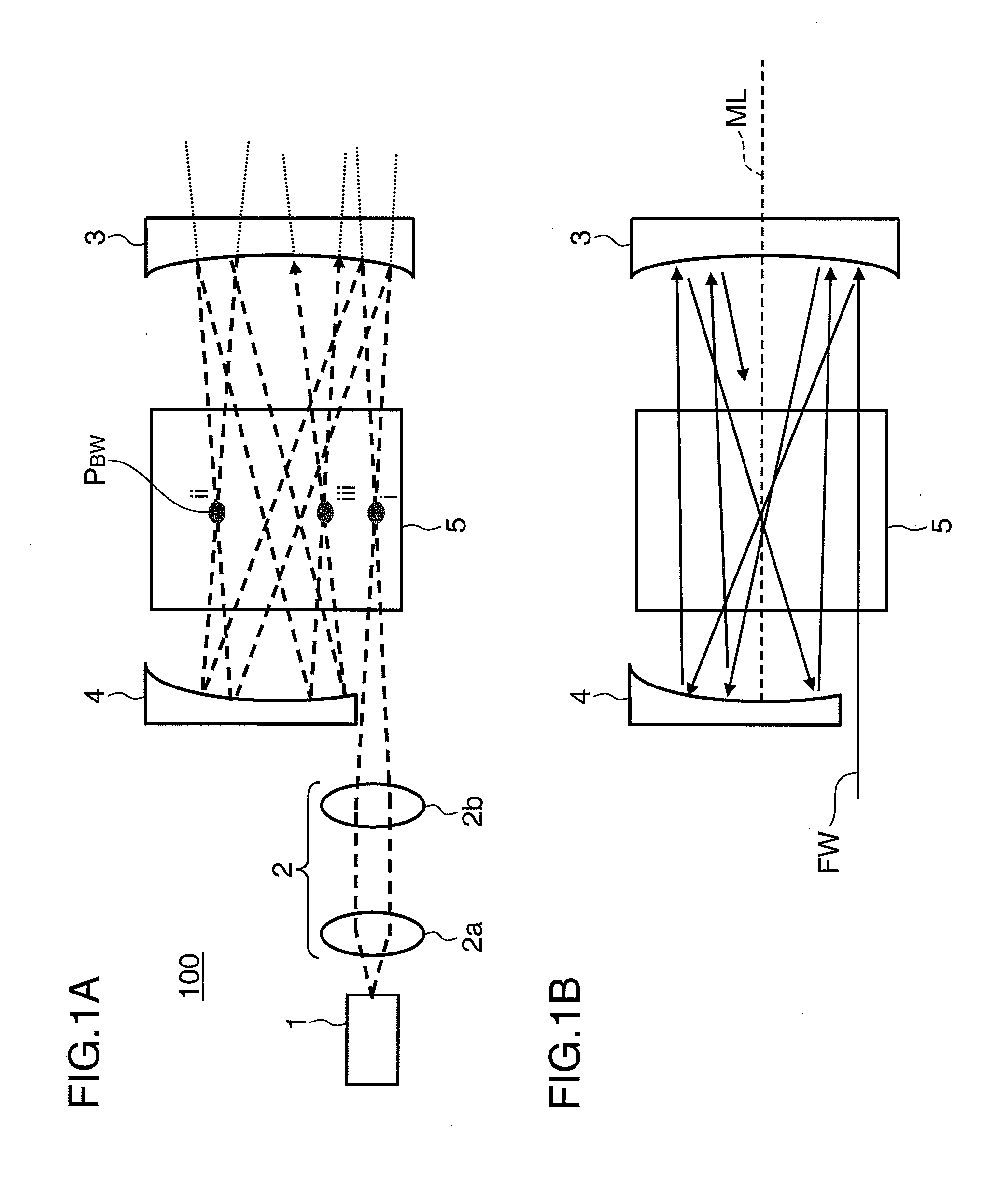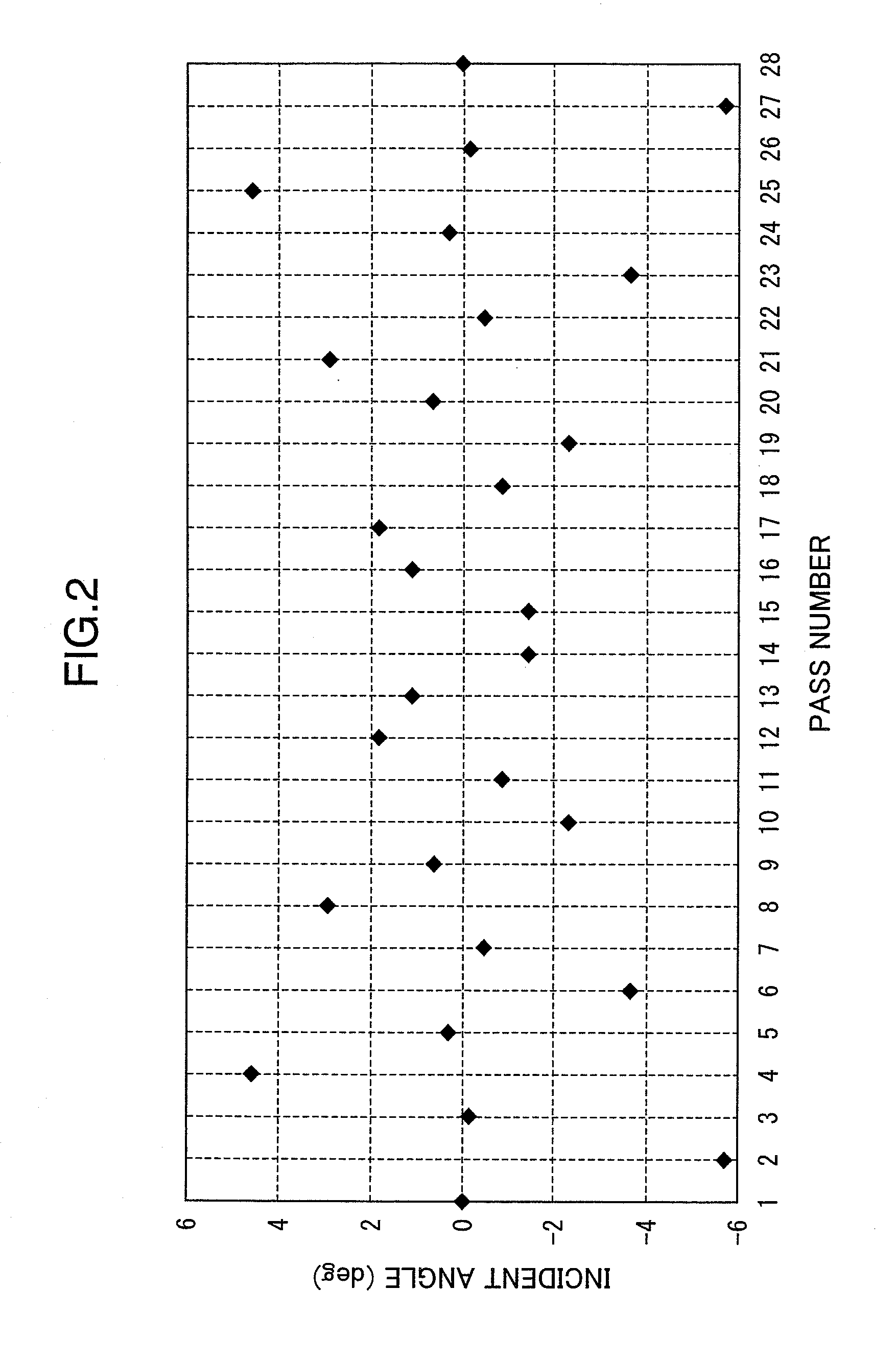Wavelength conversion laser device and image display device using the same
a laser device and wavelength conversion technology, applied in the direction of laser details, instruments, light demodulation, etc., can solve the problems of reducing conversion efficiency, unable to realize wider tolerance ranges, and restrictive conditions for adjusting and fundamental waves, so as to improve conversion efficiency, reduce speckle noise, and stabilize high power emission
- Summary
- Abstract
- Description
- Claims
- Application Information
AI Technical Summary
Benefits of technology
Problems solved by technology
Method used
Image
Examples
fourth embodiment
[0104]FIG. 6A through FIG. 6C are schematic views of wavelength converters 52 and 53 according to a fourth embodiment. Members having the same structures and functions as those of the first through third embodiments above are designated by the same reference numerals.
[0105]The wavelength converters 52 and 53 perform wavelength conversion by pseudo phase matching of the poled structure. The wavelength converter 52 includes a portion with periodically poled structure 52a and portions without periodically poled structure 52b in the thickness-wise direction of the frequency converter. The thickness-wise direction of the wavelength converter 52 referred to herein is a direction perpendicular to the sheet surface of FIG. 1 and it is a direction in which a beam path of a laser beam reciprocating between the reflective surfaces hardly shifts. When a laser beam reciprocates between the reflective surfaces, the incident angle of the laser beam into the wavelength converter 52 hardly changes i...
fifth embodiment
[0110]FIG. 7A and FIG. 7B are schematic views of a wavelength conversion laser device 400 according to a fifth embodiment. FIG. 7A is schematic top view of the wavelength conversion laser device 400 showing the width-wise direction of the wavelength converter 5. FIG. 7B is a schematic side view of the wavelength conversion laser device 400 showing the thickness-wise direction of the wavelength converter 5. Members having the same structures and functions as those of the first through fourth embodiments above are designated by the same reference numerals. The wavelength conversion laser device 400 shown in FIG. 7A and FIG. 7B includes a fundamental laser light source 1, condensing optics 22, a first concave mirror 3, a second concave mirror 4, and a wavelength converter 5.
[0111]The condensing optics 22 that controls and condenses a laser beam to be injected between the reflective surfaces is a preferable embodiment in which the lens power in the thickness-wise direction of the wavele...
sixth embodiment
[0113]FIG. 8A and FIG. 8B are schematic views of a wavelength conversion laser device 500 according to a sixth embodiment. FIG. 8A is a schematic top view of the wavelength conversion laser device 500 indicating the width-wise direction of the wavelength converter 5. FIG. 8B is a schematic side view of the wavelength conversion laser device 500 indicating the thickness-wise direction of the wavelength converter 5. Members having the same structures and functions as those of the first embodiment above are designated by the same reference numerals. The wavelength conversion laser device 500 shown in FIG. 8A and FIG. 8B includes a fundamental laser light source 1, condensing optics 2, an anamorphic reflection mirror 31, a second concave mirror 4, and a wavelength converter 5.
[0114]In the present embodiment, the anamorphic reflection mirror 31 is used instead of the first concave mirror used in the first embodiment above. A coating that reflects a fundamental laser beam and transmits a ...
PUM
| Property | Measurement | Unit |
|---|---|---|
| full width at half maximum | aaaaa | aaaaa |
| incident angles | aaaaa | aaaaa |
| beam waist radii | aaaaa | aaaaa |
Abstract
Description
Claims
Application Information
 Login to View More
Login to View More - R&D
- Intellectual Property
- Life Sciences
- Materials
- Tech Scout
- Unparalleled Data Quality
- Higher Quality Content
- 60% Fewer Hallucinations
Browse by: Latest US Patents, China's latest patents, Technical Efficacy Thesaurus, Application Domain, Technology Topic, Popular Technical Reports.
© 2025 PatSnap. All rights reserved.Legal|Privacy policy|Modern Slavery Act Transparency Statement|Sitemap|About US| Contact US: help@patsnap.com



